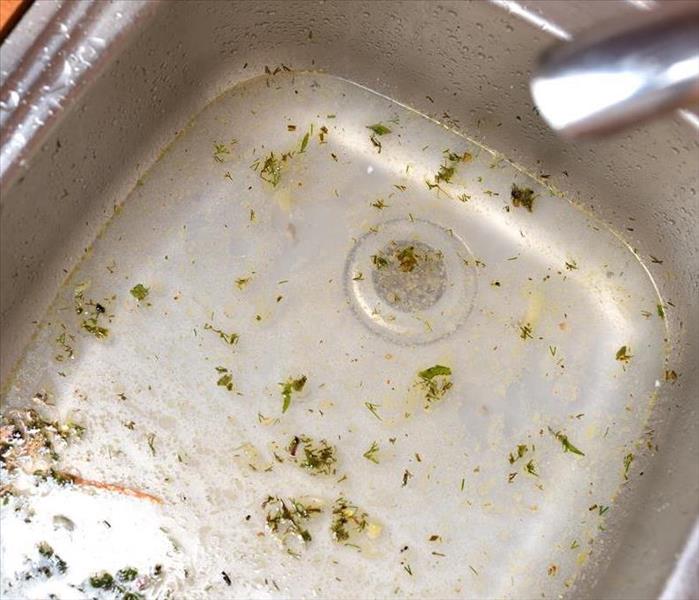Why You Should Not Use Chemicals To Clean a Clogged Drain
6/17/2022 (Permalink)
A clogged drain does not just slow down your plumbing system. It could cause a severe backup that floods your Cedar City, UT, home. While sewage cleaning professionals can help you in this situation, you should also take steps to prevent water damage in your house. You may be tempted to use chemicals to clear your drain. However, they often do more harm than good.
Chemical Drain Cleaner Can Damage Your Pipes
Chemical cleaners either take electrons from the organic substances clogging your drain, or they give electrons to those substances. This process creates heat that breaks up the blockage. The main types of drain cleaners include:
- Oxidizing cleaners
- Acid cleaners
- Caustic cleaners
While these cleaners sound good in theory, they often just push the oil, grease or fat in your drain further down the pipes. This creates a new clog that may be even tougher to clear.
Potential Dangers of Chemical Cleaners
Chemical cleaners are not just ineffective. They are also harmful. Once they are poured down the clogged drain, the chemicals travel through the pipes and settle in rivers and lakes. The chemicals may then poison animals and destroy plants.
These cleaners could also affect you and your loved ones. The chemicals are strong enough to burn through your skin. This could leave you with rashes or other open sores. You may develop throat or eye irritation just from breathing in the toxic fumes.
Drain Cleaning Alternatives
There are two safer options for removing drain clogs. You should first try mechanically clearing the drain with an auger or plunger. A small cup plunger is perfect for sinks. To use it, remove the stopper from the drain and cover the hole with a slightly wet rag. Then fill the sink halfway and place the rubber cup of the plunger over the whole. Apply quick pressures and see if the water starts draining.
If you do need to pour a cleaner down the drain, opt for a more natural solution. You can make an effective homemade de-clogger with just a half cup of vinegar and a half cup of baking soda. Pour the baking soda into the drain first and follow with the vinegar. Use a damp cloth to keep the drain hole closed. After a few minutes, add hot water to flush away the debris. Pour the water using a tea kettle so you do not burn yourself.
Remember that PVC pipes soften when exposed to hot temperatures. If you have these pipes in your home, do not use boiling water when clearing the drain. Instead of making your own cleaner, you could also buy a solution made of eco-friendly enzymes. Enzymes essentially eat the organic materials that often cause clogs. However, enzyme cleaners may take up to 24 hours to work.
If you notice a clogged drain in your home, you should only use chemical cleaners as a last resort. Instead, try clearing the blockage with an auger or plunger. If that does not work, try pouring a non-toxic enzyme cleaner down your drain. This should break up the clog without introducing toxic chemicals into the environment.



 24/7 Emergency Service
24/7 Emergency Service
